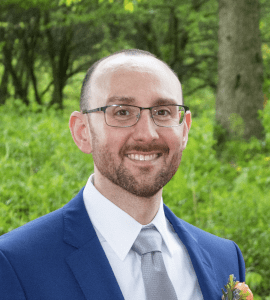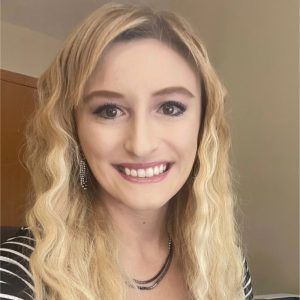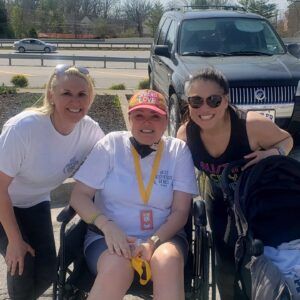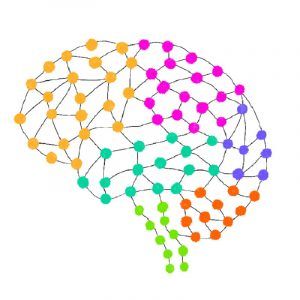
“People may not realize they have a world-class brain tumor center within driving distance. It’s a matter of getting the right information.”
—Vince Rock, ABTA Senior Program Manager
In this issue, MindMatters speaks with Vince Rock, MSW, LCSW, who oversees the ABTA CareLine. He shares the top three CareLine questions along with some quick tips and resources.
1. How can I find someone to speak with who can relate to what I’m going through?
Having social and emotional support is vital for patients and caregivers to focus on maintaining their emotional well-being and quality of life. Vince says the key is finding someone who can relate to your experience.
“When you have a rare disease and you don’t know anybody else in your community with the same disease, it can feel lonely,” he said. The ABTA has several programs to help you find the support you need:
- One-on-one Support: The ABTA Patient & Caregiver Mentor Program is a free mentor matching service connecting adult patients and caregivers with a trained volunteer mentor who’s been through a similar experience.
- Connections Discussion Community: ABTA Connections is an online discussion community with more than 36,000 brain tumor patients, survivors, and caregivers who come together for support and inspiration through different discussion threads.
- Support Groups: These are small groups of patients and caregivers in similar life situations who meet regularly to share their experiences, practical tips, and to build a support network. The ABTA Support Group Locator can help you find local, in-person support groups or a variety of topic-based online groups.
2. I’m having trouble paying my bills. How can you help?
Medical bills can create a huge burden on brain tumor patients, their families, and caregivers. Along with paying for treatment and care, other related costs — like travel, housing and medication — can quickly add up. The ABTA has compiled a list of vetted financial assistance resources across the country for patients, families and caregivers.
Some organizations offer grants and direct financial support, while others provide housing and transportation assistance.
Vince says some support resources are geo-specific or for certain age groups, so he encourages calling the CareLine for help identifying the best resources.
3. Are there any brain tumor treatment centers near me?
Finding the right treatment center is one of the most important decisions a patient or caregiver will make. While the internet is a great source of information, Vince says it can be difficult to know what to look for.
The ABTA Brain Tumor Treatment Center Guide simplifies this process — allowing you to search for treatment centers by state, zip code, or a specific institution name.
Vince says the guide provides detailed information, including the number of patients treated annually, specific treatments or technologies offered, and support services available.
“This is an unbiased source of information that you can use to compare one facility to the next,” he said.
Vince also recommends the Guiding Principles for CNS Tumor Treatment Centers as another resource to help evaluate treatment and care centers.
Call the ABTA CareLine at 800-886-2282, 8:30 a.m. – 5 p.m. weekdays (CT). You can also fill out a form and a CareLine member will contact you. You can also DM the ABTA via Facebook.

Jessie Schlacks
Jessie is Managing Editor of the bi-monthly e-newsletter MindMatters. Submit story ideas or questions to jschlacks@abta.org.




















